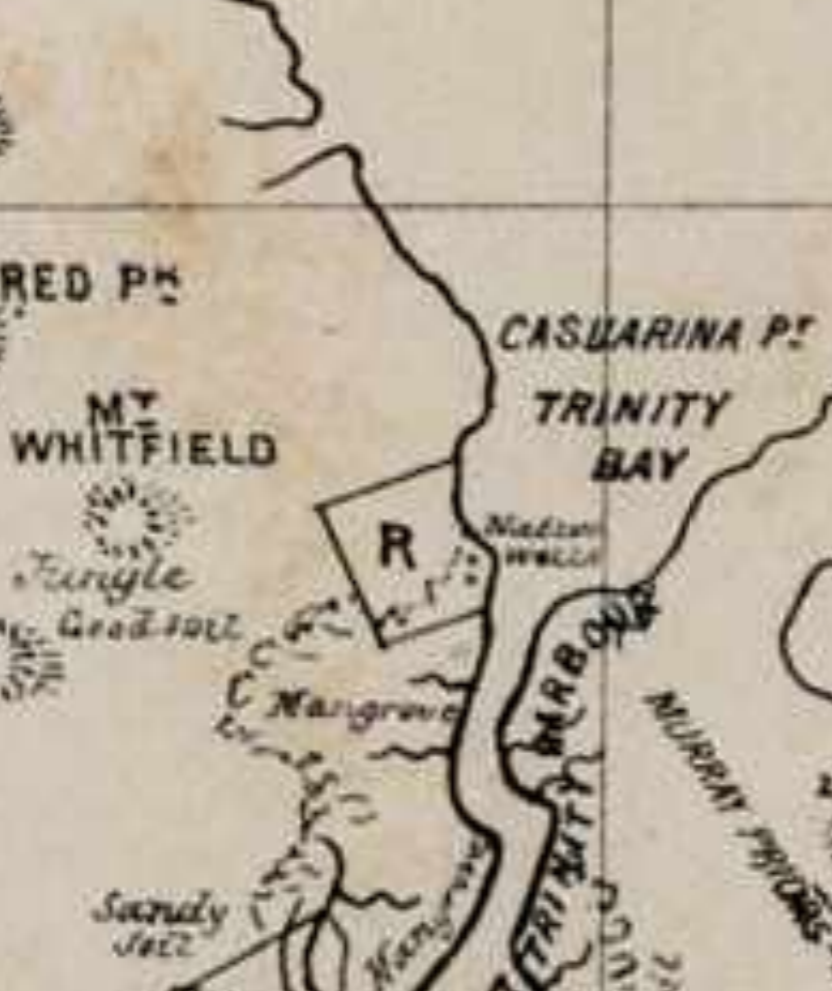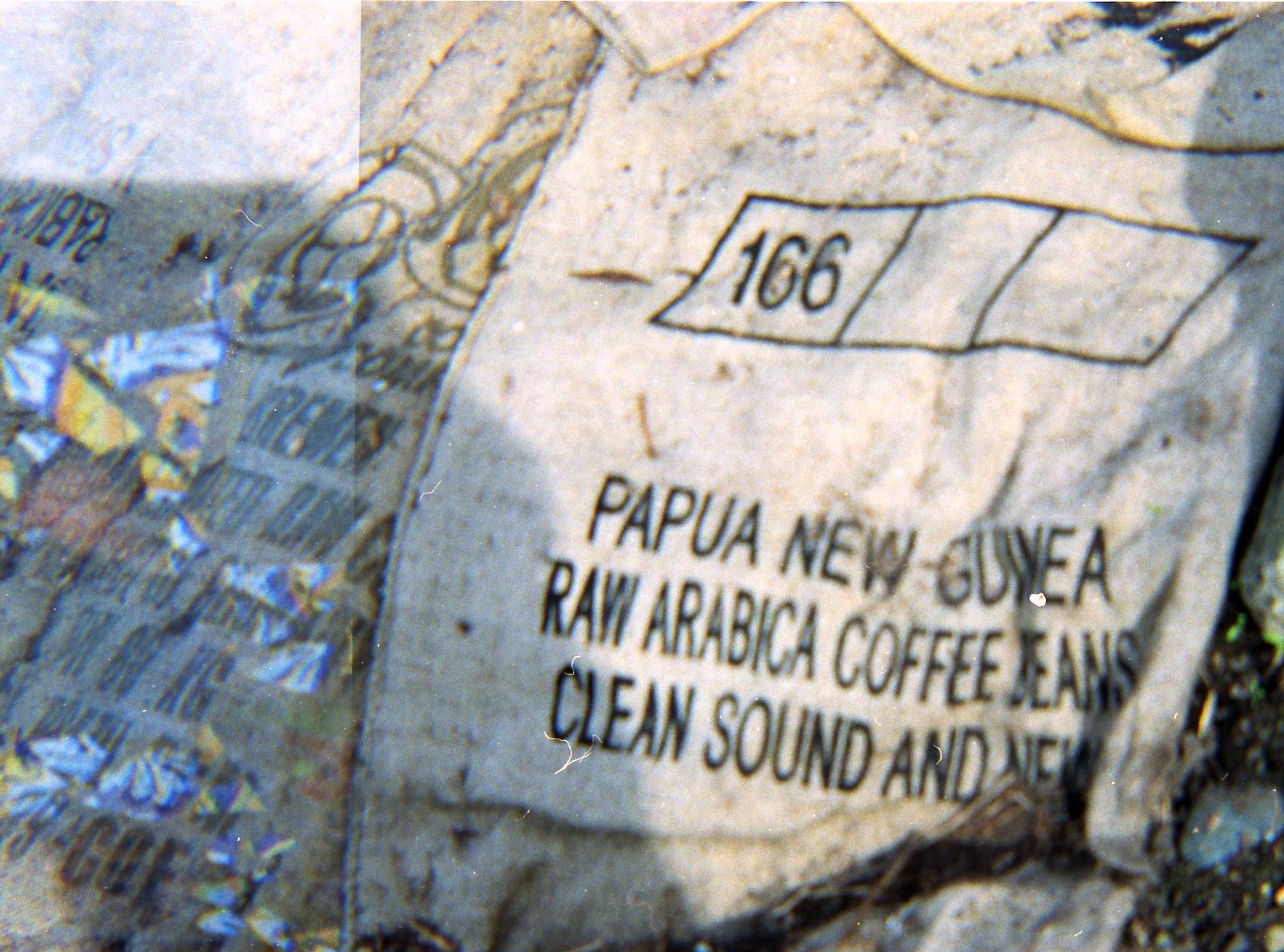|
Sangara, Papua New Guinea
Sangara is a settlement in south-eastern Papua New Guinea. It is located to the east of Kokoda. History During the Second World War the area saw fighting between the Japanese forces and the allies (primarily Australians). Missionaries were once active in the area and a mission station was established in Sangara. In 1948, Martyrs Memorial School for boys was established in Sangara, named in honour of 11 Anglican missionaries. Economy The Sangara also constitute a tribe in the area. They are known for setting up markets along the road to Buna Bay to Yodda Goldfield and trading taro with tobacco and glass bottles. Sangara is a notable area of coffee production, lying in the foothills. 18 commercial coffee plantations were established in 1926, paving the way for commercial production from 1928. Louis Austen, a retired sea-captain, once managed a government coffee plantation near Sangara. Historically there were also major rubber plantations in the area; the rubber was transported to ... [...More Info...] [...Related Items...] OR: [Wikipedia] [Google] [Baidu] |
Papua New Guinea
Papua New Guinea (abbreviated PNG; , ; tpi, Papua Niugini; ho, Papua Niu Gini), officially the Independent State of Papua New Guinea ( tpi, Independen Stet bilong Papua Niugini; ho, Independen Stet bilong Papua Niu Gini), is a country in Oceania that comprises the eastern half of the island of New Guinea and its offshore islands in Melanesia (a region of the southwestern Pacific Ocean north of Australia). Its capital, located along its southeastern coast, is Port Moresby. The country is the world's third largest island country, with an area of . At the national level, after being ruled by three external powers since 1884, including nearly 60 years of Australian administration starting during World War I, Papua New Guinea established its sovereignty in 1975. It became an independent Commonwealth realm in 1975 with Elizabeth II as its queen. It also became a member of the Commonwealth of Nations in its own right. There are 839 known languages of Papua New Guinea, one of ... [...More Info...] [...Related Items...] OR: [Wikipedia] [Google] [Baidu] |
University Of Toronto Press
The University of Toronto Press is a Canadian university press founded in 1901. Although it was founded in 1901, the press did not actually publish any books until 1911. The press originally printed only examination books and the university calendar. Its first scholarly book was a work by a classics professor at University College, Toronto. The press took control of the university bookstore in 1933. It employed a novel typesetting method to print issues of the ''Canadian Journal of Mathematics'', founded in 1949. Sidney Earle Smith, president of the University of Toronto in the late 1940s and 1950s, instituted a new governance arrangement for the press modelled on the governing structure of the university as a whole (on the standard Canadian university governance model defined by the Flavelle commission). Henceforth, the press's business affairs and editorial decision-making would be governed by separate committees, the latter by academic faculty. A committee composed of Vincent ... [...More Info...] [...Related Items...] OR: [Wikipedia] [Google] [Baidu] |
Kokoda Track Campaign
The Kokoda Track campaign or Kokoda Trail campaign was part of the Pacific War of World War II. The campaign consisted of a series of battles fought between July and November 1942 in what was then the Australian Territory of Papua. It was primarily a land battle, between the Japanese South Seas Detachment under Major General Tomitarō Horii and Australian and Papuan land forces under command of New Guinea Force. The Japanese objective was to seize Port Moresby by an overland advance from the north coast, following the Kokoda Track over the mountains of the Owen Stanley Range, as part of a strategy to isolate Australia from the United States. Japanese forces landed and established beachheads near Gona and Buna on 21 July 1942. Opposed by Maroubra Force, then consisting of four platoons of the 39th Battalion and elements of the Papuan Infantry Battalion, they quickly advanced and captured Kokoda and its strategically vital airfield on 29 July. Despite reinforcement, the Austr ... [...More Info...] [...Related Items...] OR: [Wikipedia] [Google] [Baidu] |
Cairns
Cairns (, ) is a city in Queensland, Australia, on the tropical north east coast of Far North Queensland. The population in June 2019 was 153,952, having grown on average 1.02% annually over the preceding five years. The city is the 5th-most-populous in Queensland, and 15th in Australia. The city was founded in 1876 and named after Sir William Wellington Cairns, following the discovery of gold in the Hodgkinson river. Throughout the late 19th century, Cairns prospered from the settlement of Chinese immigrants who helped develop the region's agriculture. Cairns also served as a port for blackbirding ships, bringing slaves and indentured labourers to the sugar plantations of Innisfail. During World War II, the city became a staging ground for the Allied Forces in the Battle of the Coral Sea. By the late 20th century the city had become a centre of international tourism, and in the early 21st century has developed into a major metropolitan city. Cairns is a popular tourist ... [...More Info...] [...Related Items...] OR: [Wikipedia] [Google] [Baidu] |
Louis Austen , names sometimes translated to English as "Louis"
{{disambiguation ...
Louis may refer to: * Louis (coin) * Louis (given name), origin and several individuals with this name * Louis (surname) * Louis (singer), Serbian singer * HMS ''Louis'', two ships of the Royal Navy See also Derived or associated terms * Lewis (other) * Louie (other) * Luis (other) * Louise (other) * Louisville (other) * Louis Cruise Lines * Louis dressing, for salad * Louis Quinze, design style Associated names * * Chlodwig, the origin of the name Ludwig, which is translated to English as "Louis" * Ladislav and László - names sometimes erroneously associated with "Louis" * Ludovic, Ludwig, Ludwick, Ludwik Ludwik () is a Polish given name. Notable people with the name include: * Ludwik Czyżewski, Polish WWII general * Ludwik Fleck (1896–1961), Polish medical doctor and biologist * Ludwik Gintel (1899–1973), Polish-Israeli Olympic soccer player ... [...More Info...] [...Related Items...] OR: [Wikipedia] [Google] [Baidu] |
Melbourne University Press
Melbourne University Publishing (MUP) is the book publishing arm of the University of Melbourne. History MUP was founded in 1922 as Melbourne University Press to sell text books and stationery to students, and soon began publishing books itself. Over the years scholarly works published under the MUP imprint have won numerous awards and prizes. The name ''Melbourne University Publishing'' was adopted for the business in 2003 following a restructure by the university, but books continue to be published under the ''Melbourne University Press'' imprint. The Miegunyah Press is an imprint of MUP, established in 1967 under a bequest from businessman and philanthropist Russell Grimwade, with the intention of subsidising the publication of illustrated scholarly works that would otherwise be uneconomic to publish. Grimwade's great-grandnephew Andrew Grimwade is the present patron. ''Miegunyah'' is from an Aboriginal Australian language, meaning "my house". [...More Info...] [...Related Items...] OR: [Wikipedia] [Google] [Baidu] |
Coffee Production In Papua New Guinea
Coffee production in Papua New Guinea is the country's second largest agricultural export, after oil palm, and employs approximately 2.5 million people. It accounts for approximately 1% of world production, according to the United Nations Conference on Trade and Development (UNCTAD). Coffee is the highest foreign exchange earner for Papua New Guinea, the majority of which is grown in the Eastern Highland Province, the Western Highland Province, and Simbu. With the industry not derived on a colonial plantation-based system, production is largely by small farmers with land holdings that grow as little as 20 trees per plot in "coffee gardens" alongside subsistence crops. Predominantly in isolated places, the product is mostly certified as "organic coffee". History Coffee production in PNG dates back to 1926–1927 when the first Jamaican Blue Mountain Coffee seeds were planted. The Coffee Research Institute claims that coffee was introduced to British Papua in 1890, although it is wi ... [...More Info...] [...Related Items...] OR: [Wikipedia] [Google] [Baidu] |
Buna Bay
Buna Bay is a bay and port on the southeast coast of Papua New Guinea. An important shipping port, it was developed for the purpose of transporting agricultural products overseas. The Sangara plantations of coffee, rubber and sugar Sugar is the generic name for sweet-tasting, soluble carbohydrates, many of which are used in food. Simple sugars, also called monosaccharides, include glucose, fructose, and galactose. Compound sugars, also called disaccharides or double ... were traditionally transported cargo to Buna Bay and sent it overseas thence, particularly from the late 1920s. References Bays of Papua New Guinea {{PapuaNewGuinea-geo-stub ... [...More Info...] [...Related Items...] OR: [Wikipedia] [Google] [Baidu] |
Second World War
World War II or the Second World War, often abbreviated as WWII or WW2, was a world war that lasted from 1939 to 1945. It involved the vast majority of the world's countries—including all of the great powers—forming two opposing military alliances: the Allies and the Axis powers. World War II was a total war that directly involved more than 100 million personnel from more than 30 countries. The major participants in the war threw their entire economic, industrial, and scientific capabilities behind the war effort, blurring the distinction between civilian and military resources. Aircraft played a major role in the conflict, enabling the strategic bombing of population centres and deploying the only two nuclear weapons ever used in war. World War II was by far the deadliest conflict in human history; it resulted in 70 to 85 million fatalities, mostly among civilians. Tens of millions died due to genocides (including the Holocaust), starvation, ma ... [...More Info...] [...Related Items...] OR: [Wikipedia] [Google] [Baidu] |
Provinces Of Papua New Guinea
For administrative purposes, Papua New Guinea is divided into administrative divisions Administrative division, administrative unit,Article 3(1). country subdivision, administrative region, subnational entity, constituent state, as well as many similar terms, are generic names for geographical areas into which a particular, ind ... called provinces. There are 22 provincial-level divisions, which include #List of provinces, 20 provinces, the Autonomous Region of Bougainville, and the National Capital District (Papua New Guinea), National Capital District of Port Moresby. In 2009, the National Parliament of Papua New Guinea created two additional provinces, that officially came into being on 17 May 2012. [...More Info...] [...Related Items...] OR: [Wikipedia] [Google] [Baidu] |
Kokoda
Kokoda is a station town in the Oro Province of Papua New Guinea. It is famous as the northern end of the Kokoda Track, site of the eponymous Kokoda Track campaign of World War II. In that campaign, it had strategic significance because it had the only airfield along the Track. In the decades preceding, it had been a foothills settlement near the gold fields. Kokoda is located within the administrative divisions of Kokoda Rural LLG. Establishment of the station town The British colonial administration found that a base for the Papuan Native Constabulary and colonial control was required to subdue the region and the government station of Kokoda was founded in 1904. Government officer Henry Griffin forced local people to become laborers and carriers to construct the town and build roads in the region. If they refused, Griffin would order his troopers to shoot their pigs and steal their taro plants. From Kokoda, the British and Anglo-Australian forces subdued the Orokaiva people, Or ... [...More Info...] [...Related Items...] OR: [Wikipedia] [Google] [Baidu] |
.jpg)


